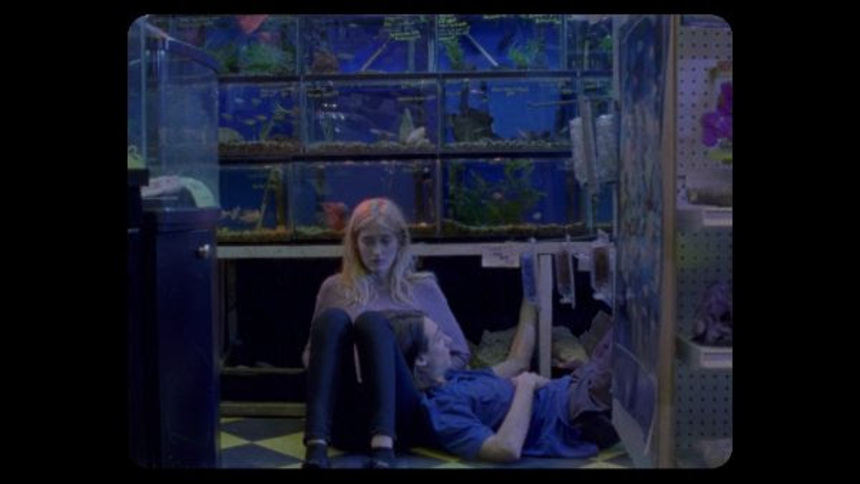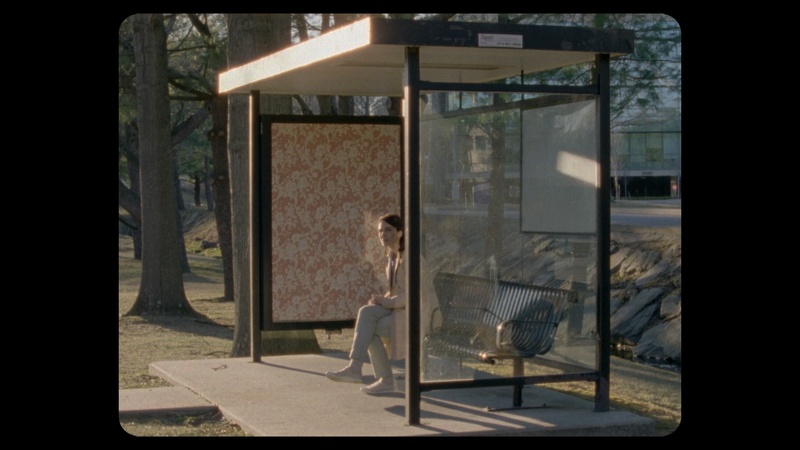GIVING BIRTH TO A BUTTERFLY Review: When It's Time to Board The Next Train

Tolstoy once famously wrote that every unhappy family is unhappy in their own way. You could substitute the word 'unhappy' for 'eccentric' or 'detached from reality'. It's not uncommon for married couples, and their children as they grow into their teen and early adult years, to find themselves separated in wants and needs, the result of personalities that evolve overtime, and more often than not in the contemporary world, the problems of simply trying to exist without constant worry about money and survival. What would our identities and existences be if we didn't have these pressures on us, if we were completely divorced from family obligations?
Giving Birth to a Butterfly, the feature debut of director and co-writer Theodore Schaefer, follows an odd road trip between two women who have found themselves trapped by unusual circumstances and understandable mistakes. While it's missing some connective tissue that would strengthen its American-style magical realism mode, there's a heartache and a hopefulness to it that makes for a compelling journey.
Diana (Annie Parisse, Friends from College) is trying to keep her family - and their finances together, as she searches a way to supplement her (likely small) pharmacy income; her husband Daryl (Paul Sparks, Castle Rock) has big dreams of running a restaurant that have little to do with reality, while he too slaves at a dead-end low-wage job. Their daughter Danielle runs lights for the local community theatre without much thought for where to go next. While their son, Drew, works at a pet shop filled with fish named after Simpsons characters, and one evening brings home his girlfriend, Marlene (Gus Birney), who is pregnant. But not by Drew, although they will raise the baby together.
Completely ignoring all the problems that could some with this, Daryl readily invites them to stay; Diana, a little too pessimistic, has problems of her own. In trying to earn more money for Danielle via an unclear internet scheme, she's had her identity stolen. She gets it in her head that if she can go to the address on the product she bought, she can get her money back, so she enlists Marlene to help her take the long journey.
While this is something of a fantastical world, oddly, it seems to reflect a lot of the reality of working and middle class America: you might have been able buy a decent house at some point, but the lack of increase in income means the bills are harder to pay. If your industry can't emply you anymore, you're stuck in a low wage job. Saving money to send your kids to university is all but impossible. It's understandable that each of them might retreat into dreams of a restaurant, the theatre, and parenthood, despite the odds stacked against them.
There is a soft focus that seeps in from the borders of the frame (and it's always nice to have a movie shot on 16mm, it lends the right quality for this story), once that suggests how the world of the characters is either shrinking, or perhaps more accurately, moving itself fully into a space where they can be enveloped, for better or worse, by those thoughts that the world doesn't allow them to explore. Diana especially seems to resist that which would allow her to separate from these worldly responsibities of motherhood and marriage - not that it's been all bad, but it has worn her down, and now that her children have (mostly) grown, perhaps she needs to discover who she is, something she can barely remember.
As her counterpart, Marlene is on a different journey. On the one hand, she is arguably trapped by her pregnancy - not that a child is all doom, of course, but Marlene knows the responsibility this means. Her own mother, Monica (Constance Shulman) has retreated into a complete fantasy world, one that leaves her (and Marlene) at a terrible disadvantage. Marlene and Diana's road trip allows them not only to bond, but to find a counterpart in each other - Diana at one crossroads, Marlene at another; Marlene can learn how to keep herself whole while being a mother, while Diana can know what it means to let go when she finally has the opportunity.
At times it feels like Schaefer and co-writer Patrick Lawler have left the audience a bit in the lurch with how the characters might have reached this point, perhaps filling in what might have started as s short film idea without fully filling in some of their ideas that got a bit left behind as Diana and Marlene trundle down the road. At times some of the symbolism comes straight out of film school (not a bad thing necessarily, but maybe a bit more imagination would have suited). But Giving Birth to a Butterfly gives a wonderful relationship and great performances at its heart, a world that feels both foreign and familiar, and one to which we might listen for that traion whistle calling our name.
Giving Birth to a Butterfly screens on the 10th and 11th in Los Angeles, and will be released on Fandor on the 16th.
Giving Birth to a Butterfly
Director(s)
- Theodore Schaefer
Writer(s)
- Patrick Lawler
- Theodore Schaefer
Cast
- Annie Parisse
- Gus Birney
- Rachel Resheff








